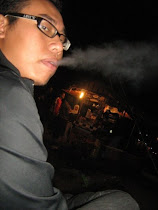What is histrionic personality disorder?
Histrionic personality disorder is one of a group of conditions called dramatic personality disorders. People with these disorders have intense, unstable emotions and distorted self-images. For people with histrionic personality disorder, their self-esteem depends on the approval of others and does not arise from a true feeling of self-worth. They have an overwhelming desire to be noticed, and often behave dramatically or inappropriately to get attention. The word histrionic means “dramatic or theatrical.”
This disorder is more common in women than in men and usually is evident by early adulthood.
What are the symptoms of histrionic personality disorder?
In many cases, people with histrionic personality disorder have good social skills; however, they tend to use these skills to manipulate others so that they can be the center of attention.
A person with this disorder might also:
- Be uncomfortable unless he or she is the center of attention
- Dress provocatively and/or exhibit inappropriately seductive or flirtatious behavior
- Shift emotions rapidly
- Act very dramatically as though performing before an audience with exaggerated emotions and expressions, yet appears to lack sincerity
- Be overly concerned with physical appearance
- Constantly seek reassurance or approval
- Be gullible and easily influenced by others
- Be excessively sensitive to criticism or disapproval
- Have a low tolerance for frustration and be easily bored by routine, often beginning projects without finishing them or skipping from one event to another
- Not think before acting
- Make rash decisions
- Be self-centered and rarely show concern for others
- Have difficulty maintaining relationships, often seeming fake or shallow in their dealings with others
- Threaten or attempt suicide to get attention
What causes histrionic personality disorder?
The exact cause of histrionic personality disorder is not known, but many mental health professionals believe that both learned and inherited factors play a role in its development. For example, the tendency for histrionic personality disorder to run in families suggests that a genetic susceptibility for the disorder might be inherited. However, the child of a parent with this disorder might simply be repeating learned behavior. Other environmental factors that might be involved include a lack of criticism or punishment as a child, positive reinforcement that is given only when a child completes certain approved behaviors, and unpredictable attention given to a child by his or her parent(s), all leading to confusion about what types of behavior earn parental approval.
yes, but 1 thing good about these people is that they are good in social skills. but i was shocked to find out that i am having this personality disorder (ala baby-san, it's not like the end of the world and the quiz might not be accurate too :p). pape pun, i think some of the question in FB are totally suck while others are ok. owh well, this is so random post that i actually just simply wanted to write it :)















2 thoughts of others:
ell... that sounds like you... hahahaha....
ceh!!
Post a Comment